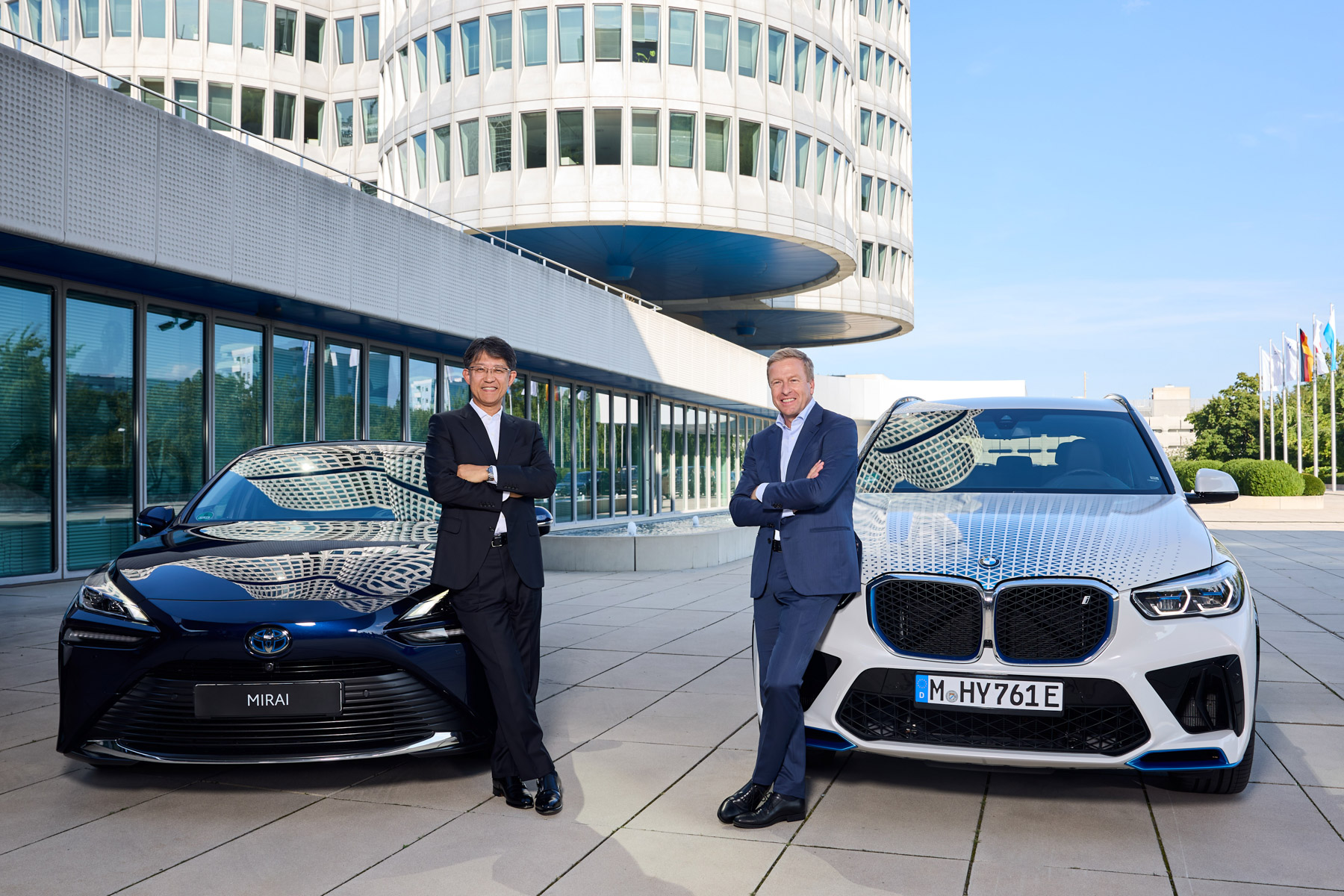BMW and Toyota's Milestone Collaboration in Hydrogen Mobility
Key Ideas
- BMW plans to launch its first series vehicle with a fuel cell drive in 2028, as part of an intensified collaboration with Toyota to develop third-generation fuel cell systems.
- The cooperation between BMW and Toyota focuses on developing the powertrain system for passenger vehicles, aiming to reduce costs in development and procurement.
- Both companies aim to strengthen hydrogen mobility by creating demand through their products and advocating for infrastructure development to establish the FCEV market.
- The CEOs of BMW and Toyota express optimism about the technology, highlighting the significance of a series production fuel cell vehicle as a major step in future mobility.
BMW is set to introduce its first fuel cell vehicle in 2028, utilizing a third-generation fuel cell system as a result of collaboration with Toyota. The partnership focuses on jointly developing powertrain systems, with an aim to reduce costs and drive hydrogen mobility. Noteworthy is the decision to integrate the FCEV version into BMW's existing model lineup, rather than introducing a standalone model. The cooperation between BMW and Toyota extends beyond vehicle development to advocating for infrastructure improvements to support hydrogen mobility. Both companies express confidence in hydrogen fuel cells as a key component of future mobility, highlighting the significance of their joint efforts in shaping the automotive industry. The positive sentiment towards hydrogen technology is evident in the statements of the CEOs of BMW and Toyota, emphasizing the milestone nature of their collaboration and the potential for hydrogen energy to revolutionize society.
Topics
Fuel Cells
Automotive Industry
Fuel Cell Technology
Collaboration
Carbon Neutrality
Toyota
BMW
Technological Progress
Premium Manufacturer
Latest News
